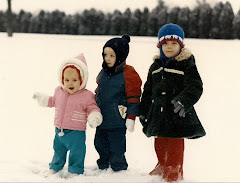Peter Elbow. “Embracing Contraries in the Teaching Process.” The Writing Teacher’s Sourcebook. Oxford: Oxford UP, 200. 54-66.
In his delightful article, Elbow puts forth a simple argument. “My argument is that good teaching seems a struggle because it calls on skills or mentalities that are actually contrary to each other and thus tend to interfere with each other” (54). Well, his argue looks simple, but the underlying issues are those that every writing instructor faces. On one hand, writing instructors “have an obligation to students,” but they also have “an obligation to knowledge and society” (54). Seeing teachers torn between these two obligations, Elbow categorizes writing instructors as one of three types. First, there are the heartless ones who are so dedicated to what they are teaching that the halls run red with ink. Second, the softer teachers who sympathy with their students sacrifice the craft to help students “get by,” and last are the halfhearted ones who, being committed to both, fall somewhere in between.
However, Elbow likes “to think that these two commitments coincide,” and it goes without saying that they usually do (54). Every composition instructor has been confronted with that student who tries and fails and tries and fails again. Should our commitment to standards be so strong that we assign the failing grade and leave a blistering comment? Or should we realize that the student needs something more, that she needs “praise and support rather than a tough grade, even for her weak performance, if she is really to prosper as a student and a person” (54)? How do we resolve these two obligations for the betterment of all parties concerned, the student, the society, and the instructor?
Elbow points out that as composition instructors, we are both allies to the students and guardians of the social standard. As allies, we try to make students comfortable to ask naïve questions and “to invite all students to enter in and join us as members of a learning community” (55). However, as guardians, “we must discriminate, evaluate, test, grade, and certify” (55). In order to do the greatest good for ourselves, our students, and our society, Elbow remarks that we must bring these two responsibilities into harmony. He admits that “there is obviously no one right way to teach, yet…in order to teach well we must find some way to be loyal both to students and to knowledge or society” (64). For me, I hope that with experience comes a wisdom to deal with this dual loyalty and an ability to serve these two “masters.”
Audio Books
16 years ago


No comments:
Post a Comment